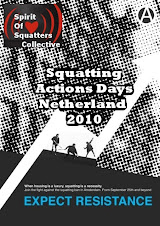
Alas however the law, traditions and attitudes do not fully overlap and women struggle through life constantly juggling productive and reproductive work, always trying to prove that she is a human being worthy of rights and respect in equal measure..
It was only in 1937 that Filipino women won the right to vote having fought hard for it. The Suffragists marked the beginning of the Filipino women's movement that blossomed in the Martial Law years and culminated during the United Nations-led series of International Conferences on Women.
This report on the human rights situation of 44 million Filipino women will attempt to show the status of women and judge the Philippine government's success in enacting national laws enacted to protect women, as well as implementing those international instruments it has ratified towards gender equality and gender justice.
The framework of analysis will be based on the Convention on the Elimination of All Forms of Discrimination against Women (CEDAW), which the Philippines ratified in 1981. In August 2006, the Philippines reported to the CEDAW Committee and its Concluding Comments revealed the gaps in the fulfillment of women's rights. Alongside CEDAW, the status of Filipino women will also be marked against the Millennium Development Goals (MDGs) and its time-bound benchmarks.
Where applicable, mention will be made of the Beijing Platform for Action of 1995 on 12 Critical Areas of Concern.
I. Social and Cultural Rights
Society and culture define gender roles the world over. And these socialized roles of men and women became the basis of their rights under the law - most of which were made by men. As society changed, so gender roles have changed and laws had to follow.
A. Rural, Indigenous and Moro Women
The most marginalized in Philippine society are the rural and Indigenous Peoples (IPs). Not only are the latter poor, but they belong to a tribal society considered different from the mainstream Western-"educated" and "civilized" society. They live in far-flung areas unreachable by government in terms of access to education, medical services and basic necessities: They are frequently caught in the crossfire between insurgents, bandits and the military. They are also regularly victims of environmental degradation that affects their health and livelihood.
Women in indigenous and ethnic communities have been further marginalized, particularly with regard to land ownership. In the Cordillera region for example, indigenous women have been deprived of their rights under customary law to be co-owners of land, because government resettlement projects award land titles and certificates of titles to crops to men as "head of the family".
Moro women, both "Lumad" and IP are forgotten in "the land of promise" that is Mindanao. Although guaranteed the same rights as the rest of Filipinos under the constitution, they are also bound by the Code of Muslim Personal Laws, which allows polygamy, early and arranged marriages and inherit only half of the inheritance of the male heir.
CEDAW article 14 is devoted to rural women to ensure that they participate and benefit from rural development -- equal treatment in land reform and access to agricultural credit and loans, marketing facilities and technology; and adequate living conditions, especially in relation to housing, sanitation, electricity and water supply, and transport and communications.
To improve their plight, the CEDAW Committee recommends increased education opportunities to discourage early marriages and sex-disaggregated data on rural, IP and Moro women to show their social, economic and health needs that must be prioritized.
More You can read here:
http://www.rightsreporting.net/index.php?option=com_content&task=view&id=45&Itemid=131


No comments:
Post a Comment